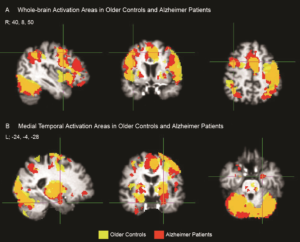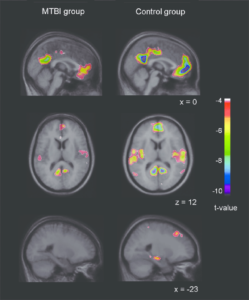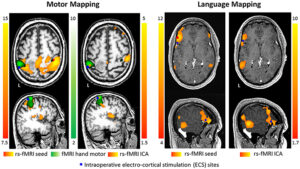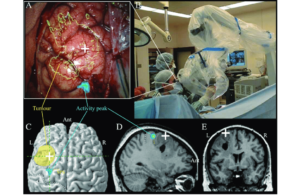
In the field of neuroscience, technological developments have uncovered hitherto unknown territory, providing hope and prospects for people suffering from brain illnesses and trauma. Functional Magnetic Resonance Imaging (fMRI) is a groundbreaking instrument that goes beyond standard diagnostic procedures and provides essential insights into the workings of the human brain. It has significant benefits for patients and physicians both, providing a better knowledge of illnesses and opening the door to more tailored therapies.
Understanding fMRI
Functional Magnetic Resonance Imaging (fMRI) is a non-invasive neuroimaging technology that identifies and maps brain activity using blood flow changes. By studying these variations, researchers may determine which brain areas are active during various activities or in reaction to stimuli. This capacity has shown to be extremely useful in identifying and comprehending neurological illnesses and trauma.
Unraveling the Mysteries of Neurological Disorders
For patients battling neurological disorders such as Alzheimer’s, Parkinson’s, epilepsy, and multiple sclerosis, fMRI offers a beacon of hope. Clinicians can acquire vital insights into the underlying causes of these disorders by studying the brain’s functional connectivity and activity patterns. This understanding is critical for early identification, accurate diagnosis, and creating individualized treatment programs based on each patient’s distinct neurological profile.
In Alzheimer’s disease, for example, fMRI has been useful in identifying abnormalities in brain function that are associated with memory loss and cognitive decline. Identifying abnormal activity patterns allows clinicians to intervene early, delaying disease development and enhancing patients’ quality of life.

Guiding Precision Interventions
Traumatic brain injury (TBI) is another area where fMRI has proven extremely useful. Understanding the extent and location of brain injury in TBI patients is critical for making treatment options and predicting long-term results. fMRI allows clinicians to evaluate cognitive function, identify areas of brain remodeling or compensation, and track recovery progress over time.
Furthermore, fMRI can play a critical role in neurorehabilitation efforts after trauma. By mapping the brain’s plasticity and adaptive mechanisms, therapists can create customized rehabilitation procedures that promote recovery and restore lost function. This tailored strategy has enormous potential for improving outcomes and easing the path to recovery for trauma patients.
Read about How our Virtual Skylight makes patients feel at ease during an MRI

Enhancing Surgical Precision
In the field of neurosurgery, fMRI has transformed preoperative planning and intraoperative guidance. Surgeons can adapt their procedures to reduce the possibility of postoperative abnormalities by identifying eloquent brain regions responsible for essential processes such as speech, motor control, and sensory processing. This accurate mapping improves surgical safety and boosts tumor removal while protecting vital brain networks.

Overcoming Challenges and Expanding Horizons
fMRI has limits even with its enormous promise. Obstacles include being vulnerable to motion artifacts, having inconsistent data interpretation, and requiring complex analytical methods, highlighting how crucial it is to continue conducting research and developing new ideas in this area. New developments in multi-modal imaging integration, data processing methods, and machine learning could help overcome these challenges and open up new areas of neuroimaging research.

In the future, further advancements in fMRI techniques should lead to discoveries in the understanding, diagnosis, and treatment of trauma and neurological illnesses. fMRI serves as evidence of the revolutionary potential of technology in neuroscience, having been instrumental in deciphering the workings of the human brain, directing targeted interventions, and improving patient outcomes.
In conclusion, fMRI, or functional magnetic resonance imaging, is a paradigm change in evaluating and treating trauma and neurological illnesses. fMRI allows doctors to provide patients and their families with individualized care, optimize treatment plans, and instill hope in them by offering previously unheard-of insights into brain function and connectivity. We are setting out on a journey towards a future where the mysteries of the brain are unveiled, and healing becomes not just a possibility but a promise as we fully utilize this revolutionary technology.
fMRI, or functional Magnetic Resonance Imaging, is a non-invasive neuroimaging technology that maps brain activity by detecting changes in blood flow. It helps researchers and clinicians identify which areas of the brain are active during different tasks or in response to stimuli.
fMRI is crucial for understanding and diagnosing neurological disorders such as Alzheimer’s, Parkinson’s, epilepsy, and multiple sclerosis. By analyzing brain activity patterns and functional connectivity, fMRI helps in early detection, accurate diagnosis, and the creation of individualized treatment plans based on a patient’s unique neurological profile.
Yes, fMRI is highly valuable in the care of trauma patients, especially those with traumatic brain injury (TBI). It allows clinicians to assess the extent and location of brain injury, monitor recovery, and guide neurorehabilitation efforts by mapping brain plasticity and adaptive mechanisms.
In neurosurgery, fMRI enhances preoperative planning and intraoperative guidance by identifying critical brain regions responsible for essential functions like speech and motor control. This precise mapping helps surgeons minimize risks and protect vital brain networks during procedures.
Despite its benefits, fMRI has limitations, including susceptibility to motion artifacts, inconsistent data interpretation, and the need for advanced analytical methods. Ongoing research and innovations in multi-modal imaging, data processing, and machine learning aim to address these challenges.
Future advancements in fMRI are expected to deepen our understanding of the brain, improve diagnosis and treatment of neurological disorders and trauma, and lead to more personalized and effective therapies. fMRI continues to revolutionize neuroscience and patient care.
©2024 Kryptonite SolutionsTM. All Rights Reserved.
Powered by: Purple Tuché